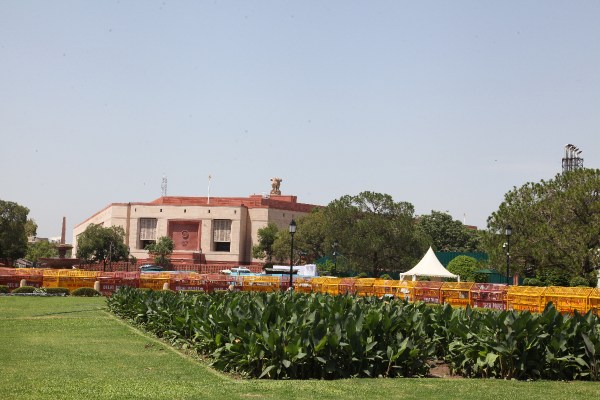India’s parliament has passed a telecommunications bill that replaces its century-old rules as the country, with over 1.17 billion telephone connections and 881 million internet subscribers, aims to modernize connectivity and embrace new services, including satellite broadband, just months before general elections.
On Thursday, the upper house of the Indian parliament approved the Telecommunications Bill, 2023, through voice votes, just a day after the bill was cleared in the lower house, with many opposition leaders absent due to their suspension. The bill, which abolished the rules made in the telegraph era from as early as 1885, grants the Prime Minister Narendra Modi-led government the power to use and take control of telecom services and networks and monitor traffic data in national security interest. It also retains the ground for the Indian government to intercept communication.
The newly passed telecom bill also allows spectrum allocation for satellite-based services without participating in auctions, a move to favor companies including OneWeb, Starlink and Amazon’s Kuiper that are all keen to start their satellite broadband services in the world’s most populous country and have long-demanded “administrative process” over auctions for spectrum allocation. India’s Jio, looking to take on the three global players with its native satellite broadband service but with relatively limited resources, earlier opposed the model of spectrum allocation administratively.
The bill also mandates biometric verification for subscribers and restricts the number of SIM cards each subscriber uses to limit fraud. Additionally, it includes the provisions of civil penalties of up to $12,000 in the case of infringing specific provisions and up to $600,400 for breaching the terms and conditions defined in the law.
As the Indian government intends to attract foreign investors by expanding private participation, the bill carries amendments to the telecommunication regulator-aimed Telecom Regulatory Authority of India Act, 1997. These amendments allow executives with over 30 years of private sector experience to be appointed as the regulator’s chairperson, while those with over 25 years can be its members. The country previously only allowed retired government employees to serve as chairpersons and members of the regulator.
“It is very comprehensive and very big structural reforms have come from the vision of Prime Minister Shri Narendra Modi ji. The legacy of the old scammers in the telecom sector will be left behind, and arrangements will be made through this bill to make the telecom sector a sunrise sector,” Ashwini Vaishnaw, the Indian telecom minister, said while introducing the bill in the parliament.
Interestingly, the telecom bill excludes the term “OTT,” available in its initial draft last year, indicating regulations for over-the-top (OTT) messaging apps such as WhatsApp, Signal and Telegram. Industry bodies, including the Internet and Mobile Association of India, which counts Google and Meta among its members, have praised the change. However, the scope of the regulation has not been clearly defined throughout the document. Shivnath Thukral, Meta’s public policy head in India, warned in an internal email that the government may have the power to categorize OTT apps as telecommunications services in the future and subject them to an authorization regime, as reported by Indian outlet Moneycontrol.
Digital rights activists and privacy advocacy groups have also raised concerns over the ambiguity related to the regulation and absence of public consultations for the bill’s final version.
At a public event earlier this week, Apar Gupta, the founding director of the digital rights group Internet Freedom Foundation, said the bill lacks safeguard architecture against those who are surveilled.
“The department of telecommunications still refuses to make a centralized repository of internet shutdowns, thereby reducing transparency. We are completely ignoring the central core of telecommunication rules that are required,” he emphasized.
Digital rights organization Access Now called for the bill’s withdrawal and the creation of a new draft through consultation.
“The bill is regressive as it enhances the government’s colonial-era powers to intercept communications and shut down the internet. It undermines end-to-end encryption, which is crucial for privacy,” said Namrata Maheshwari, Asia Pacific Policy Counsel at Access Now, in a prepared statement.
The bill now awaits the Indian president’s approval to become an official act.
